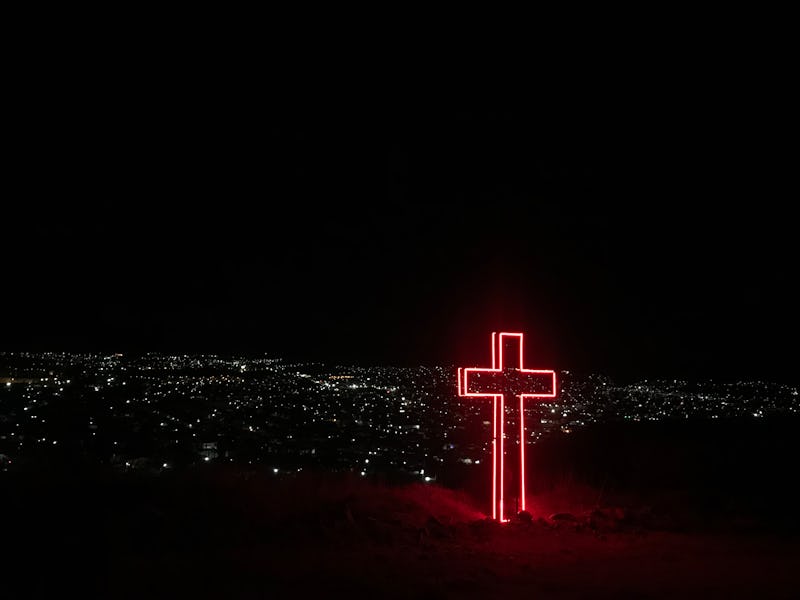Which Came First, God or Society? Scientists Think They Have an Answer
“It’s not the main driver of social complexity as some theories had predicted."

Amid hundreds of origin stories for hundreds of world societies, religion offers a tidy explanation for why humans started working together. It tells us that people with a common belief in a supernatural being who encouraged humans to get along — either by punishing the immoral or rewarding the righteous — united strangers to build complex societies. This “pro-social religion hypothesis” feels logical, but the researchers behind a paper published Wednesday in Nature argue that complex human societies probably developed the other way around.
In the research letter, published Wednesday, a team led by Oxford University researchers show through historical analysis that the pro-social religion hypothesis is wrong: Moralizing gods usually arise after the birth of complex societies, they show.
To come to this conclusion, they examined data from the Seshat Databank on 414 different societies from 30 different regions that existed over 10,000 years. By looking both at levels of social complexity and how these societies understood the influence of their gods on social behavior — a factor they call “supernatural enforcement of morality” — they found that complex societies were unified by religious ritual, but not usually by specific rules about morality that the religion enforced.
“It’s not the main driver of social complexity as some theories had predicted,” Harvey Whitehouse, Ph.D., an anthropologist at the University of Oxford and one of the lead authors of the study, told Scientific American.
Researchers say moralizing gods have usually arisen after complex societies, not before.
Despite the popular belief that a religious moral code was required to unite people — the team prefers to call it the “moralizing god” hypothesis — codes of religious morality actually didn’t arise until after people came together, they argue. If anything, these ideas may have been less important in the early days of a society and more important as time went on.
“Our results suggest that belief in moralizing gods was not the only or even the main factor that enabled the expansion of human societies, but may have occurred along with other features of ritual practices and religion to facilitate cooperation in increasingly complex social systems,” they write.
In other words, while humans came together over and over again throughout human history and built complex societies without having religions that told them to cooperate, it may have been the case that as these societies became more complex, the need for codes of morals became more necessary.
As an explanation for how societies progress over time, the “moralizing gods” hypothesis may not be totally dead — it just might not deserve much credit for the beginnings.
Abstract:
The origins of religion and of complex societies represent evolutionary puzzles. The ‘moralizing gods’ hypothesis offers a solution to both puzzles by proposing that belief in morally concerned supernatural agents culturally evolved to facilitate cooperation among strangers in large-scale societies. Although previous research has suggested an association between the presence of moralizing gods and social complexity, the relationship between the two is disputed, and attempts to establish causality have been hampered by limitations in the availability of detailed global longitudinal data. To overcome these limitations, here we systematically coded records from 414 societies that span the past 10,000 years from 30 regions around the world, using 51 measures of social complexity and 4 measures of supernatural enforcement of morality. Our analyses not only confirm the association between moralizing gods and social complexity, but also reveal that moralizing gods follow — rather than precede —large increases in social complexity. Contrary to previous predictions, powerful moralizing ‘big gods’ and prosocial supernatural punishment tend to appear only after the emergence of ‘megasocieties’ with populations of more than around one million people. Moralizing gods are not a prerequisite for the evolution of social complexity, but they may help to sustain and expand complex multi-ethnic empires after they have become established. By contrast, rituals that facilitate the standardization of religious traditions across large populations generally precede the appearance of moralizing gods. This suggests that ritual practices were more important than the particular content of religious belief to the initial rise of social complexity.